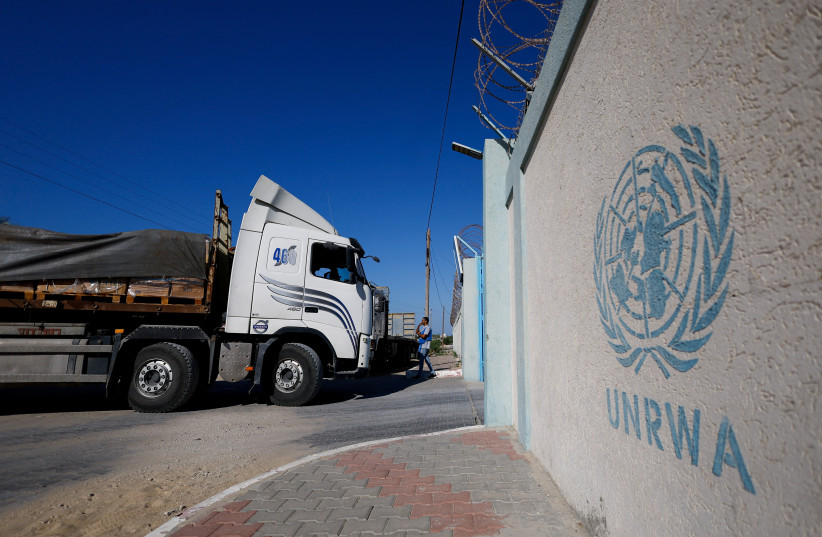The war cabinet’s decision to permit two fuel tankers into the Gaza Strip per day touched off a firestorm late last week, as both government ministers and opposition figures harshly criticized the move.
Finance Minister Bezalel Smotrich fired off a furious letter to Prime Minister Benjamin Netanyahu, calling the decision “unacceptable” and demanding that the war cabinet be expanded to include him and the heads of the other factions in the government.
The move, he wrote, “spits in the face of the IDF soldiers, the hostages and their families, and the bereaved families. It is also contrary to the decision of the security cabinet and therefore is illegal. This is not how you win a war, this is not how you destroy Hamas, and this is not how we will return the hostages.”
National Security Minister Itamar Ben-Gvir, too, criticized the move. “Once again, policy decisions are made in the war cabinet, which leads Israel to a wrong conception. As long as the hostages are not even visited by the Red Cross, there is no sense in giving ‘humanitarian gifts’ to the enemy,” he said.
Former minister Avigdor Liberman joined the chorus, as well. “Stop fueling the Nazis from Hamas!” he tweeted. “The statements that ‘not a drop of fuel’ would enter the Strip have turned into allowing thousands of liters unilaterally, without receiving any humanitarian gesture for our hostages. I call to stop this recklessness at once.”

Liberman is right – in part: The war cabinet’s decision marks a reversal of the position previously expressed by government leaders, who had indeed vowed that “not a drop” of fuel would enter Gaza until the hostages are freed.
But in a rapidly changing wartime environment, a decision that may have been correct two weeks ago may no longer be today, and shifting circumstances may require decision-makers to adapt accordingly.
As National Security Adviser Tzachi Hanegbi said in a press conference Friday, the war cabinet’s decision was made in response to a “special request” by the United States and is meant to enable Gaza’s water and sewage systems to operate, preventing the spread of disease.
“We asked the defense officials present in the meeting – both the IDF and the Shin Bet (Israel Security Agency) – whether this decision undermines operational goals, whether it aids Hamas, whether it impairs our ability to achieve the war’s goals,” Hanegbi said. “The unequivocal response was that we can accept the American request, and that was indeed the decision that was made.”
Decision to allow fuel into Gaza made unanimously
Former IDF chief of staff and defense minister Benny Gantz, a member of the war cabinet, noted that the decision was made unanimously.
“This specific transfer was approved at the request of international actors in order to enable the operation of water treatment and sewage systems, and for other needs of the organizations active in the southern Gaza Strip. This is not a shift in strategy, but is rather addressing a specific need that will enable the IDF to continue operating,” he said.
And on Saturday night, Netanyahu himself said that the provision of humanitarian aid is “essential” to maintain international support for Israel’s military effort and enable it to continue pursuing its wartime goals.
“Without humanitarian aid, even our closest friends will find it difficult to support us over time and it will be very difficult to see this war through to the end,” he said. “That’s why when the IDF and the Shin Bet jointly recommended that the cabinet accept the American request… the war cabinet agreed unanimously.”
In other words, contrary to claims that the war cabinet’s decision “spits in the face” of the IDF, the IDF itself recommended it. Contrary to claims of “recklessness,” Israel’s defense agencies said the decision maintains their ability to achieve Israel’s operational goals. And contrary to claims that it undermines the IDF’s ability to continue pursuing its mission, it actually enables the military to continue doing so.
This episode illustrates that wartime decisions are best made by those willing to arrive at responsible conclusions based on the most up-to-date circumstances and information, rather than by armchair generals who spout hollow slogans for narrow political purposes. It also illustrates that the war cabinet is best populated by the former and has no need for the latter.
